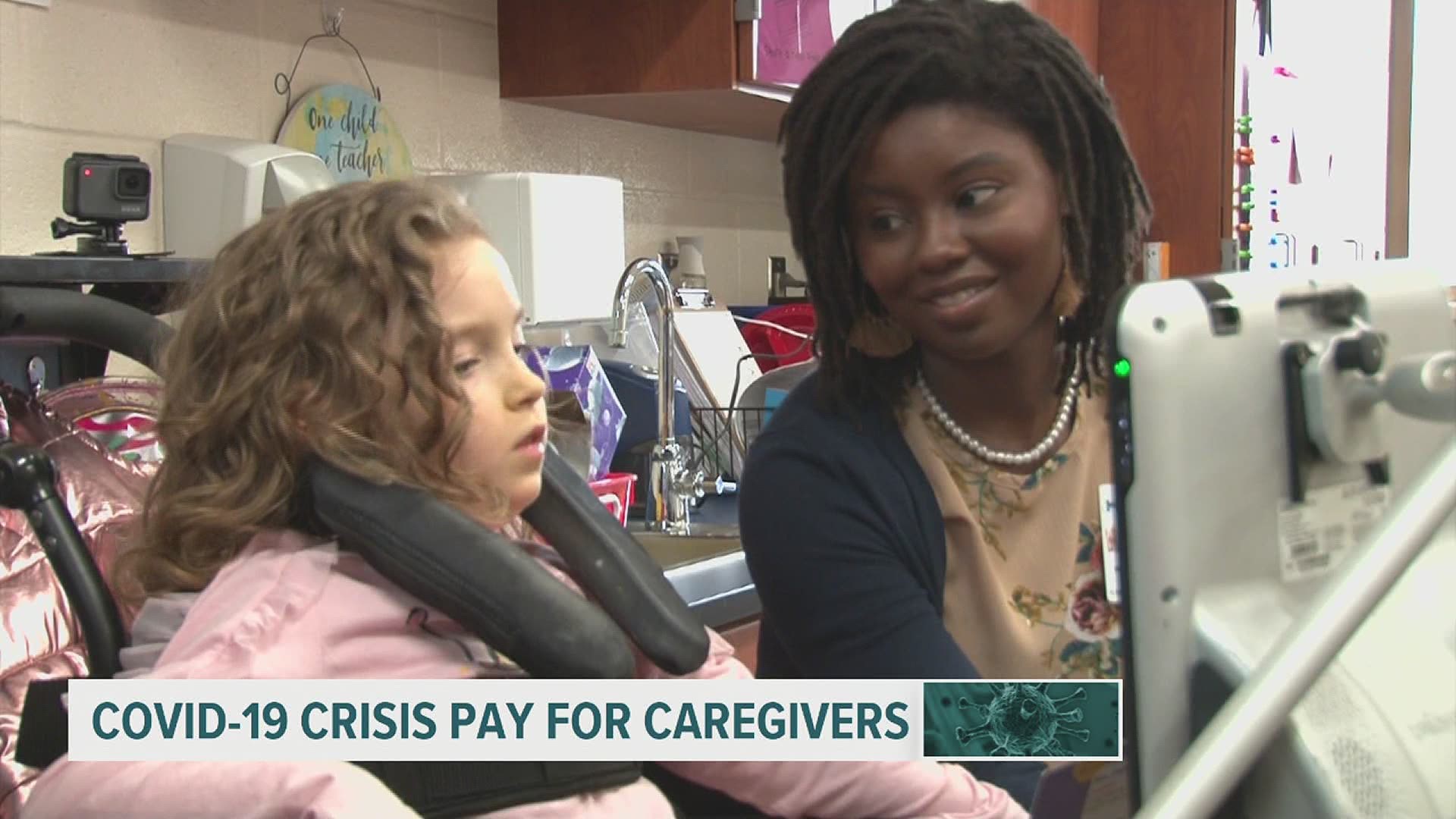HARRISBURG, Pa. — The Pennsylvania Department of Human Services is distributing $31.5 million in CARES Act funding to direct care workers. Some at-home caregivers earn less than $12 an hour. Months into the COVID-19 pandemic, they are finally getting some financial help.
“We take on so much risk each and every day to do our job. This has been a stressful time,” said Sydney McMillan, a direct care worker from Philadelphia.
Funded with state and federal dollars from the Coronavirus Aid, Relief, and Economic Security Act – also known as the CARES Act – this compensation has been distributed as a one-time payment to more than 16,200 direct care workers in Pennsylvania employed through the participant-directed employer model.
Payments are based on hours worked and the average payment is $1,730. Direct care workers provide at-home care for seniors and people with disabilities. They are lifelines to those who need bedside care.
“This is some of the most personal and intimate work and participant-directed caregivers didn’t even have gloves. Despite that, home care workers kept showing up because they know if they are not at their clients’ homes, maybe no one will be,” said Matthew Yarnell, president of SEIU Healthcare Pennsylvania.
Teresa Miller, Secretary of the Department of Human Services, also called on state lawmakers to increase Pennsylvania’s stagnant minimum wage. The commonwealth's current minimum wage of $7.25 per hour is the lowest allowed by federal law and trails many other states in the nation, including all of its surrounding states.
Direct care workers would be among the professionals to benefit from the Wolf Administration’s proposal to raise the minimum wage to $12 an hour, with a pathway to $15 an hour, a department spokesperson said.
“If we could find additional dollars, that would be great. I know there are a lot of professions that are struggling in this pandemic,” Secretary Miller explained. “I’m hopeful that through the Governor’s Office we can work with the legislature and get support to continue these services at the levels that they’re at today. We’re a big part of the budget so we obviously have a lot at stake as these discussions happen.”
For now, this crisis pay has made the invisible COVID-19 workforce finally feel seen.
“This means more to me than just helping me financially. Crisis pay has made me feel respected, like someone is finally listening to caregivers and cares about what we are experiencing as essential workers,” McMillan said.
The Wolf Administration has also paid out $112 million in CARES Act funding to agencies that employ direct care workers who provide personal assistance services.

